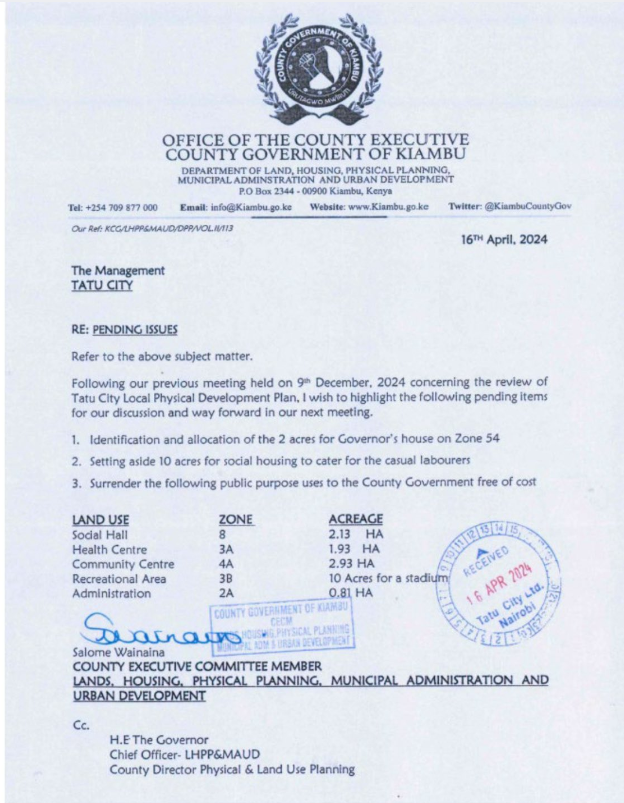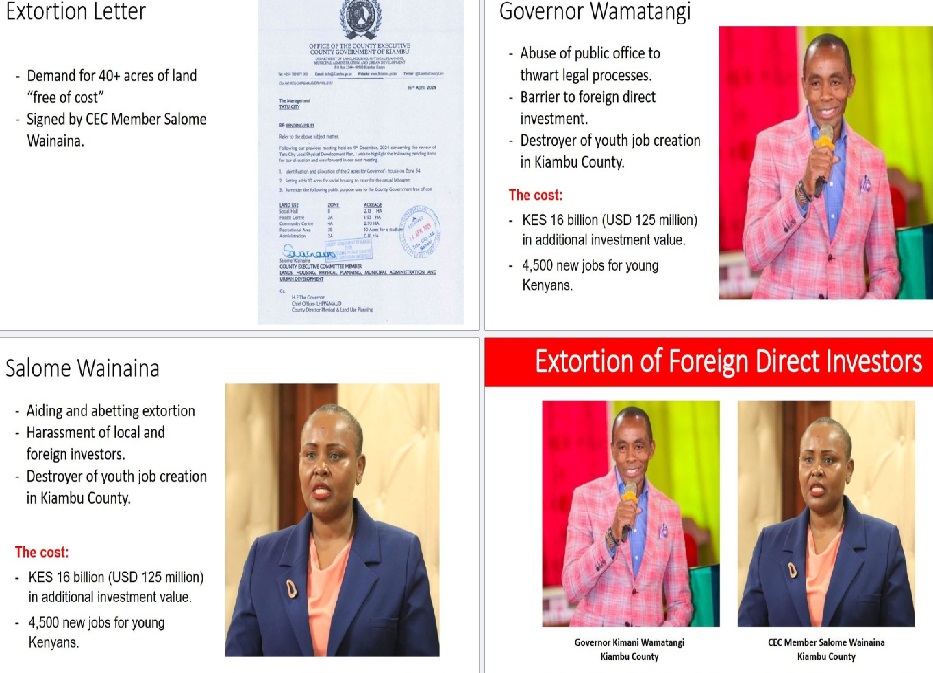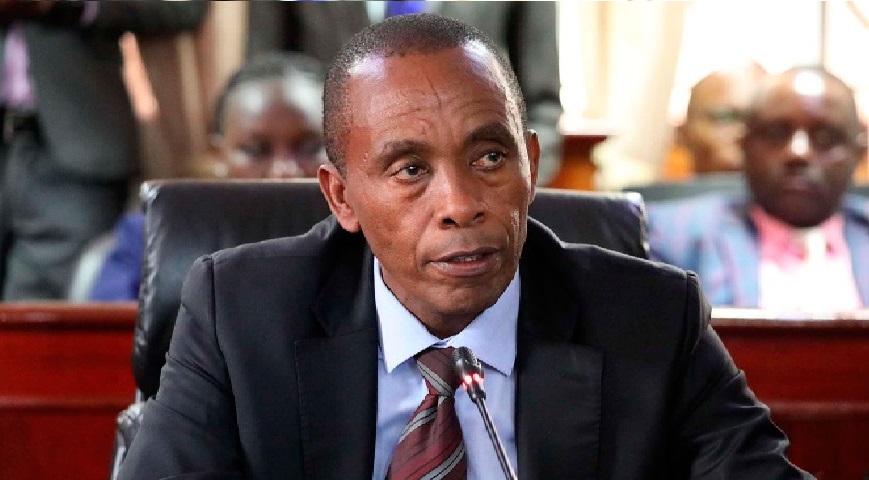Tatu City has condemned Kiambu county governor Kimani Wamatangi and county executive committee member Salome Wainaina over extortion claims.
At a press conference in Nairobi, Tatu City provided the media with a letter titled “Pending Issues” from Salome Wainaina, County Executive Committee (CEC) Member, Lands, Housing, Physical Planning, Municipal Administration and Urban Development.
On April 16, 2024 letter, Wainaina demands that Tatu City “surrender” more than 40 acres of land, including land for Wamatangi’s residence. “It’s time to blow the whistle on Governor Wamatangi’s attempted extortion of Tatu City,” said Preston Mendenhall, Chief Operating Officer and Kenya Country Head at Rendeavour.
Did you read this?
BREAKING NEWS
Tatu City has accused Kiambu Governor Kimani Wamatangi and CEC Member Salome Wainaina.
— Omwamba 🇰🇪 (@omwambaKE) July 11, 2024
We don't have a country here!
THIS SHOULD BE TRENDING! pic.twitter.com/yuSuIdMeQN
“Governor Wamatangi, in a series of meetings with Tatu City and its representatives, has illegally demanded free land in return for approving Tatu City’s new Master Plan. We condemn Governor Wamatangi for harming Kenya’s investment climate and destroying job creation.”
Tatu City estimates that Wamatangi’s delay has cost the county and the country more than Ksh.16 billion (USD 125 million) in additional investment value and 4,500 new jobs for young Kenyans.
In meetings with Tatu City representatives, Wamatangi and CEC Member Wainaina have made the surrender of land a condition for approving Tatu City’s Master Plan.
Legal Basis In Which Tatu City Can Surrender A land To County Government
According to Kenyan law, there is no legal basis or procedure for Tatu City to surrender land to Kiambu County unless the county pays for it.
In line with Kenyan and international best practices in urban planning, the Tatu City Master Plan has designated 103 acres of land for “public purpose” use.
The Land Act of Kenya provides that, if the government requires land for a public purpose, then a compulsory acquisition process must follow, meaning that the land must first be acquired through a process of just and equitable compensation to the landowner.

To further support its accusation against Wamatangi, Tatu City presented documents detailing the arduous approval process it followed for its new Master Plan. Initially, Tatu City submitted its amended Master Plan to the Ministry of Lands and Physical Planning for review.
Following this submission, an elaborate process ensued, involving multi-stakeholder interactions with national and county offices, as well as public participation.
The amended Master Plan addressed all stakeholder feedback. In June 2023, the National Director of Physical Planning published a newspaper advertisement inviting further comments on the amended Tatu City Master Plan.

After a 60-day period without substantial feedback or objection, the National Director of Physical Planning, before approving the amended Tatu City Master Plan, sought a letter of no objection from the Kiambu County Government, in accordance with the provisions of the Physical and Land Use Planning Act, 2019.
Salome Wainaina, the Kiambu County CEC Member who authored the extortion letter, confirmed that Tatu City had met all requirements. However, she and Wamatangi personally refused to allow the approval to proceed.
Tatu City called on Wamatangi, who has no formal role in the Master Plan approval process, to stop interfering in land planning and investment matters. They also urged the CEC to issue a letter of no objection to the revised Master Plan.
Tatu City, a pioneering Special Economic Zone, has generated over 20,000 jobs since 2021. The new city features more than 2,000 affordable and mid-income apartments, along with public and private schools serving 6,000 students and 82 businesses, including leading Kenyan and international companies.
Tatu City has catalyzed over Ksh.385 billion in investments, hosting some of Africa’s premier facilities. These include a new global 5,000-seat call center set to double in size, employing over 10,000 Kenyans in the coming years. Additionally, cold storage and logistics facilities have bolstered Kenya’s food and medicine security.









